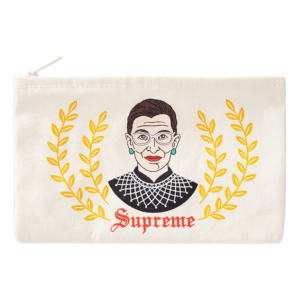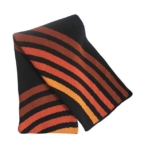Operations
April 11, 2022 •
What You Should Know About Publicity Rights

It has been a trend for years; however, it seems when something of historical significance happens, there is an uptick in products created with public figures’ likenesses. Rights of publicity are an intellectual property right that many “regular” folks are not aware of. The term was coined by a judge in 1953, and according to the International Trademark Association, “rights of publicity are rights that protect against the misappropriation of a person’s name, likeness, or other indicia of personal identity — such as nickname, pseudonym, voice, signature, likeness, or photograph — for commercial benefit.” Sometimes these are known as personality or personal rights.
Things You Need to Know
Here are the seven things you should know about publicity rights before you manufacture or sell goods with a public figure’s image attached.
Products that capitalize on rights of publicity.
Just about anything under the sun may be capitalizing on a person’s rights of publicity. From T-shirts to jewelry to dolls and just about any other product that can be mass produced could possibly be considered benefiting monetarily from rights of publicity.
Who can expect rights of publicity?
Theoretically, everyone can, but not everyone should. When speaking about rights of publicity there are four factors that are considered. These factors are considered, but there are no bright line answers; that is what makes this area so difficult.
- Time. If you are a public figure, are you always, from then on considered a public figure?
- Location. If you are recognizable in Australia, does that mean you are a celebrity in the U.S.?
- Taste/Genre. If you are well known in one circle does that mean you are a celebrity even if unrecognizable in another genre?
- Professional or Business Expert. If you are well known within a certain specialty, does that mean you are famous outside of that area?
For each of the factors listed, the answer is it is possible that it could be no and then change to yes. But when does it change? That is the gray area that creates such confusion.
Publicity rights are governed by state law.
Rights of publicity, if governed at all, are governed by state law. More than half of the states recognize rights of publicity in some form, while other states do not recognize these rights at all. This makes it extremely difficult 1) to enforce, and 2) to know how to move forward with a concept or product in the appropriate manner.
Rights of publicity may conflict with First Amendment rights.
While many will say that a company should not be able to create products that use another’s image for profit. There are potential free speech considerations at play in these cases. Where products are being made in a custom or bespoke manner, it is possible to argue that the creator is exercising their free speech rights of expression.
First Amendment carries a great deal of weight in our courts, so this is a strong argument. However, there again, is no bright line test to know when an item crosses from expression to production.
Rights of publicity may give rise to trademark issues.
It is possible that using a public person’s image may give rise to issues in trademark. Celebrities make money not only off their image but also from monetizing their name. If a company creates products with that person’s name on them, it could possibly open up a claim for trademark infringement.
Proper licensing.
The safest way to produce products with another’s likeness on it is to request and receive permission. In the legal world, this is known as licensing. Licensing can happen in a variety of different ways that are dependent upon how the agreement is drafted. There can be a flat fee or royalties. It really depends on the parties involved and what the goals are for each.
Contributory liability.
Contributory liability is a fancy legal term for being held liable for the company you keep, or in the gift industry the inventory you keep. If a retailer chooses to sell goods that are manufactured in violation of another’s rights of publicity, it is possible they could be held liable as well. Thus, best practices for retailers are to vet your wholesale vendors and make sure they are operating within the confines of the law.
State Information
Below are a list of states that recognize rights of publicity and how each treats the rights of publicity, whether it is codified by statute or common law (which is law decided by court cases).
- Alabama (common law)
- Arkansas (statute)
- California (common law and statute)
- Connecticut (common law)
- Florida (statute)
- Georgia (common law)
- Hawaii (statute)
- Idaho (common law)
- Illinois (statute)
- Indiana (statute)
- Kentucky (common law and statute)
- Massachusetts (statute)
- Michigan (common law)
- Minnesota (common law)
- Missouri (common law)
- Nebraska (statute)
- Nevada (statute)
- New Jersey (common law)
- New York (statute)
- Ohio (common law)
- Oklahoma (statute)
- Pennsylvania (common law)
- Rhode Island (statute)
- South Dakota (statute)
- Tennessee (statute)
- Texas (common law)
- Utah (common law and statute)
- Virginia (statute)
- Washington (statute)
- Wisconsin (common law and statute)
Summary
Rights of publicity is a complicated area of intellectual property law. It is an area that is pervasive within the creative and gift industry. If you are unsure about whether you are operating within the parameters of the law, whether you are manufacturing or selling retail, you should consult an attorney who can guide and educate you on the law at play.
About Angie Avard Turner
Angie Avard Turner is an attorney who exclusively represents clients in the gift industry including retailers, wholesalers, artists, and bloggers. She is licensed to practice law in the state of Georgia, but she focuses on handling copyright and trademark issues both nationally and internationally. For more information regarding her practice, visit www.angieavardturnerlaw.com.
DISCLAIMER: The materials available in this article are for informational purposes only and not for the purpose of providing legal advice. You should contact your attorney to obtain advice with respect to any particular issue or problem. Use of and access to this website do not create an attorney-client relationship between Angie Avard Turner Law and the user or browser.





















